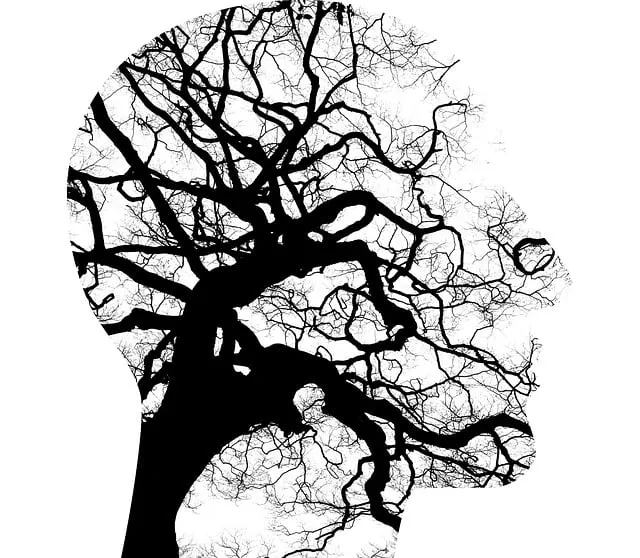Cultural sensitivity is a cornerstone of high-quality mental healthcare, especially in diverse communities like Colorado Springs where Kaiser Permanente offers comprehensive coverage. By understanding and respecting cultural differences, mental health professionals create inclusive environments, build trust, and tailor therapeutic approaches to specific communities. Strategies include educational programs for staff, risk management addressing cultural barriers, and adapted practices like mindfulness meditation. Kaiser Permanente's services in Colorado Springs focus on cultural sensitivity through therapy, medication management, compassion cultivation, and tailored communication, ensuring equitable access and positive patient outcomes for diverse residents.
In a diverse society, cultural sensitivity is paramount in mental healthcare practice. This article explores the critical need for understanding and addressing cultural differences to provide effective treatment. We delve into the impact of cultural background on mental health, focusing specifically on Kaiser Permanente’s mental health coverage in Colorado Springs. By examining cultural barriers and implementing strategies for culturally competent care, we aim to enhance access and outcomes for all patients.
- Understanding Cultural Sensitivity in Mental Healthcare
- The Impact of Cultural Background on Mental Health Treatment
- Kaiser Permanente Mental Health Coverage in Colorado Springs
- Navigating Cultural Barriers to Accessing Mental Healthcare Services
- Strategies for Culturally Competent Practice in Mental Healthcare Settings
Understanding Cultural Sensitivity in Mental Healthcare

Cultural sensitivity is a cornerstone of quality mental healthcare. It involves understanding and appreciating the diverse cultural backgrounds, beliefs, and practices of individuals seeking treatment. In contexts like Kaiser Permanente mental health coverage in Colorado Springs, where patients from varied ethnic, racial, and socioeconomic groups access services, this sensitivity becomes even more critical. By integrating knowledge about different cultures into mental health practice, professionals can create a safe and supportive environment that respects individual experiences and enhances trust.
This approach goes beyond simple awareness. It involves adapting therapeutic techniques, communication styles, and interventions to meet the specific needs of diverse populations. Effective cultural sensitivity in mental healthcare requires ongoing learning through programs like Mental Health Education Programs designed to enhance emotional regulation skills among professionals. Moreover, it involves implementing robust Risk Management Planning tailored to address potential cultural barriers and misunderstandings, thereby fostering inclusive care that promotes positive outcomes for all patients.
The Impact of Cultural Background on Mental Health Treatment

Understanding the impact of cultural background on mental health treatment is paramount in providing effective care, especially in diverse communities like Colorado Springs where Kaiser Permanente offers comprehensive mental health coverage. Every individual carries a unique cultural lens that shapes their experiences and perceptions, influencing how they express and perceive mental distress. For instance, what might be considered a sign of anxiety in one culture could be interpreted differently in another. This cultural variability extends to treatment preferences and responses, highlighting the need for tailored interventions.
Mental health professionals play a crucial role in bridging these cultural gaps. By incorporating cultural sensitivity into their practices, they can create inclusive environments that foster trust and engagement. Incorporating techniques like mindfulness meditation and emotional well-being promotion strategies, as offered by the Stress Management Workshops Organization, can be adapted to resonate with diverse populations. Such approaches not only enhance treatment outcomes but also empower individuals to navigate their mental health journeys in a way that feels authentic and supportive.
Kaiser Permanente Mental Health Coverage in Colorado Springs

In Colorado Springs, Kaiser Permanente offers comprehensive mental health coverage designed to cater to a diverse community. The organization recognizes the importance of cultural sensitivity in healthcare delivery and has implemented various initiatives to ensure that its services are accessible and tailored to meet the unique needs of individuals from different backgrounds. Through its network of specialized professionals, Kaiser Permanente provides a wide range of mental health support, including therapy sessions, medication management, and innovative programs focused on stress management and mental wellness.
One notable aspect of Kaiser Permanente’s approach is its integration of compassion cultivation practices within the therapeutic framework. By promoting understanding, empathy, and self-care, the healthcare provider aims to foster a supportive environment that enhances mental wellness. This holistic perspective not only addresses symptoms but also empowers individuals to navigate life’s challenges with resilience, ensuring long-lasting positive outcomes for patients seeking mental health services in Colorado Springs.
Navigating Cultural Barriers to Accessing Mental Healthcare Services

Navigating cultural barriers is a critical aspect of ensuring equitable access to mental healthcare services. Many individuals from diverse cultural backgrounds face unique challenges when seeking support for their mental well-being. These barriers can include language differences, cultural misunderstandings, and limited awareness or stigma surrounding mental health issues within specific communities. For instance, in areas like Colorado Springs, where Kaiser Permanente offers comprehensive mental health coverage, it’s essential to recognize that different cultures may have distinct approaches to expressing and addressing emotional difficulties.
One effective strategy to overcome these barriers is through the implementation of compassionate cultivation practices and communication strategies tailored to diverse populations. The Stress Management Workshops Organization, for example, promotes programs that teach mindfulness and stress reduction techniques adapted to various cultural contexts. By incorporating cultural sensitivity training and utilizing accessible communication methods, mental health professionals in Colorado Springs can better serve clients from diverse backgrounds, ensuring that Kaiser Permanente’s mental health coverage benefits all residents equitably.
Strategies for Culturally Competent Practice in Mental Healthcare Settings

In mental healthcare settings, particularly with organizations like Kaiser Permanente offering comprehensive mental health coverage in diverse regions, such as Colorado Springs, culturally competent practice is paramount. Strategies for enhancing cultural sensitivity include staff training on diversity and unconscious bias to ensure equitable care for all patients. Incorporating patient-centered approaches that respect individual beliefs and values fosters trust and engagement.
Integrating evidence-based practices like compassion cultivation can significantly improve outcomes. These practices promote understanding, empathy, and resilience, which are crucial for addressing the unique needs of diverse populations. Tailoring therapy to incorporate cultural nuances and leveraging resources specific to different communities can enhance the effectiveness of mental wellness support and mood management interventions.
Cultural sensitivity is paramount in mental healthcare, where understanding diverse backgrounds can significantly impact treatment outcomes. As evidenced by Kaiser Permanente’s mental health coverage in Colorado Springs, accessible services tailored to various cultural needs are essential. By addressing the barriers and implementing culturally competent strategies, mental healthcare providers can ensure inclusive care. This approach not only enhances patient satisfaction but also fosters better mental well-being within diverse communities, ultimately enriching the tapestry of healthcare services available in areas like Colorado Springs.






